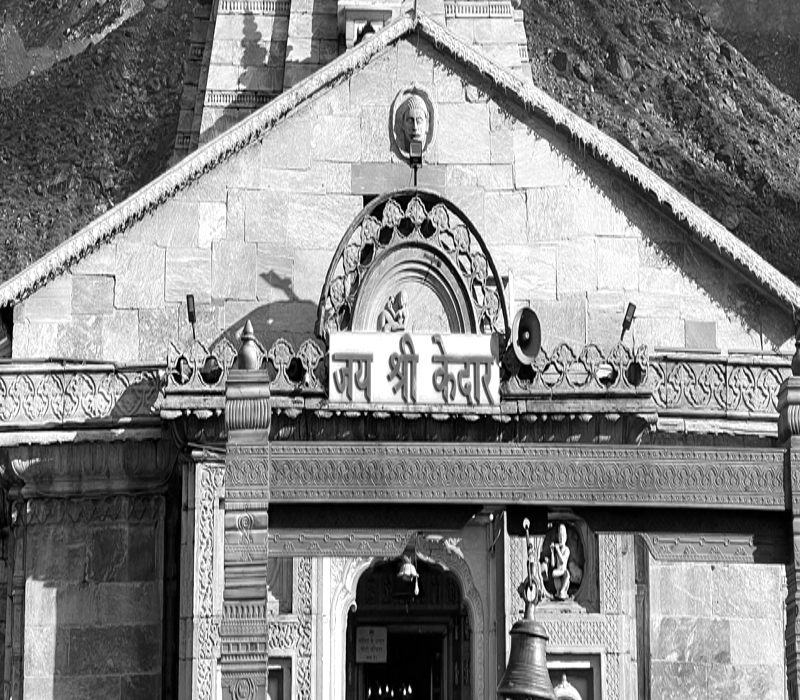- Offices: Dehradun | Dwarka New Delhi
Daksha Mahadev Temple, Haridwar: A Spiritual Haven of Mythology and Devotion - Nestled along the sacred banks of the Ganges River in Haridwar, Uttarakhand, India, the Daksha Mahadev Temple stands as a testament to ancient mythology and enduring devotion. Steeped in the stories of Hindu lore, this temple is a symbol of the relationship between humans and the divine, of reverence and redemption. With its historical significance, architectural beauty, and spiritual ambiance, the Daksha Mahadev Temple beckons pilgrims, seekers, and enthusiasts of cultural heritage to explore the depths of its mythology and experience the divine presence that dwells within its sacred walls.
A Glimpse into Mythology: The Story of Daksha
The Daksha Mahadev Temple derives its name and significance from the mythological figure of Daksha Prajapati, a central character in Hindu narratives. Daksha is believed to be one of the progenitors of creation, and his story is intricately woven into the fabric of Hindu mythology.
According to Hindu scriptures, Daksha was the son of the creator god Brahma and was tasked with populating the universe with beings. In his role as a creator, Daksha became the father of Sati, a divine being who incarnated as his daughter. Sati later married Lord Shiva, one of the principal deities of the Hindu pantheon. However, Daksha harbored resentment towards Lord Shiva and refused to invite him to a grand yagna (sacrificial ritual) he organized. Filled with grief and indignation at her father's actions, Sati immolated herself in the yagna's fire.
In her next incarnation, Sati was born as Parvati and once again married Lord Shiva. The story of Daksha serves as a backdrop to the temple's establishment and is a reminder of the complexities of human relationships, the power of devotion, and the transformative nature of divine grace.
The Temple's Architecture: A Fusion of Mythology and Artistry
The Daksha Mahadev Temple's architectural style reflects the essence of its mythological significance. The temple's design harmoniously blends traditional elements with artistic flourishes, creating a space that resonates with spirituality and history. The structure showcases intricate carvings, ornate pillars, and symbolic representations that narrate the story of Daksha and its associated lessons.
Sacredness and Devotion: Experiencing the Temple
Visiting the Daksha Mahadev Temple is not just an exploration of architecture—it's a journey into the heart of Hindu mythology and a demonstration of devotion. The temple provides a space for pilgrims and seekers to experience the following:
Mythological Pilgrimage: The temple invites visitors to connect with the story of Daksha, reflecting on the complexities of human emotions and relationships and the role of devotion in seeking divine solace.
Divine Presence: Devotees come to the temple to experience the divine presence of Lord Shiva and seek his blessings for health, prosperity, and spiritual growth.
Rituals and Offerings: The temple offers a platform for performing rituals, pujas (worship ceremonies), and offering prayers. These acts of devotion allow individuals to establish a personal connection with the divine.
Spiritual Contemplation: The temple's serene ambiance encourages introspection, allowing visitors to contemplate the profound teachings embedded in its mythology.
Festivals and Celebrations
The Daksha Mahadev Temple comes alive during various Hindu festivals, providing a glimpse into the vibrant tapestry of Indian traditions. The festival of Shivratri holds special significance here, as it commemorates the union of Lord Shiva and Goddess Parvati. Pilgrims gather in large numbers to participate in rituals, prayers, and cultural festivities that honor the divine couple.
Practical Tips for Visiting Daksha Mahadev Temple
Timing: The temple is open for visitors throughout the day. However, it's advisable to visit during the early morning or evening to avoid crowds and experience the serenity of the surroundings.
Modest Attire: Dress modestly and respectfully while visiting the temple. This practice is a sign of reverence for the sacred environment.
Footwear: As a mark of respect, visitors are required to remove their footwear before entering the temple premises. Shoe storage facilities are available.
Photography: While photography is often allowed in the outer premises, be mindful of the temple's sanctity and the privacy of fellow devotees.
In Conclusion
The Daksha Mahadev Temple in Haridwar is a bridge between mythology and devotion, history and spirituality. As you step into its sacred precincts, you'll be transported to a realm where the stories of ancient deities come to life, and the lessons they impart continue to resonate with modern seekers. The temple is a space for reflection, reverence, and an opportunity to connect with the divine presence that echoes through its halls. It's a testament to the enduring power of mythology and the timeless journey of seeking the divine in the midst of human experiences. Whether you're drawn to its architectural beauty, the stories it holds, or the sense of tranquility it offers, the Daksha Mahadev Temple invites you to embark on a journey of spiritual exploration, self-discovery, and connection with the sacred tapestry of Hindu tradition.

